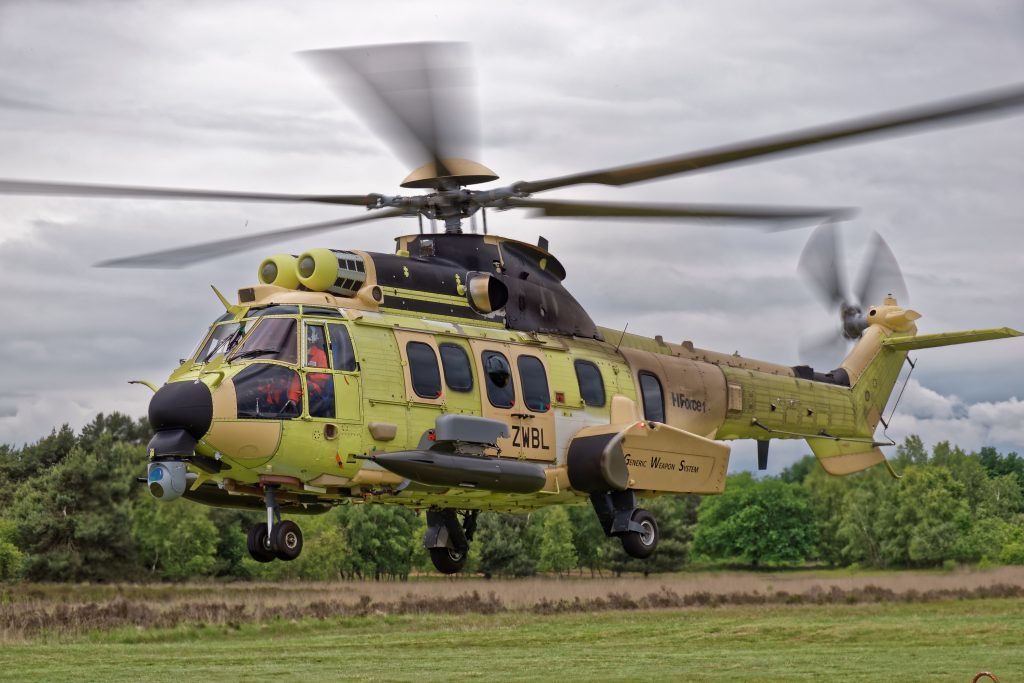
Unions are backing offshore workers who will refuse to fly in controversial helicopters amid a fresh call for a public inquiry into a string of North Sea tragedies involving the aircraft.
Aviation watchdogs announced the lifting of flight restrictions on Super Puma helicopters last week, in a move that sent shockwaves through the industry.
The Airbus aircraft had been grounded by the UK and Norway since a fatal crash off the Scandinavian country last year, which killed 13 people.
Critics said there was little to no warning of the sudden change of policy, and that the lifting of the restriction while no root cause for the tragedy has yet been identified was “surprising” and “disappointing”.
An ‘extraordinary’ meeting was held Stavanger yesterday morning between aviation watchdogs, unions and their members, after which the workforce representatives set out their stance against getting back into the aircraft.
Although not yet currently flying, the Civil Aviation Authority has paved the way to a possible return of Super Puma helicopters, with certain safety caveats.
But the RMT and Unite the Union have made a stand alongside members – while calling for a public inquiry into a string of accidents involving the choppers.
In a statement they said: “As trade unions, we fully support the principal of workforce engagement and we feel that Airbus and the regulators have fundamentally failed in this. We therefore find ourselves at odds with both Airbus and the regulators.
“As we see it, there is only one way to remedy this situation and that is a comprehensive and meaningful engagement exercise of offshore workers.
“We will therefore be requesting that all North Sea oil companies commence a structured and consistent survey of workers about this aircraft type.
“Until such an engagement exercise has been completed, the position of the trade unions representing oil and gas workers will be that our members refuse to fly.”
The unions added: “We shouldn’t have to remind the regulators and manufacturer, but the facts around Super Puma type aircraft are the most important issues to our constituents so we will; this aircraft type has been in the sea 6-times in little over 8-years; 65 people have been rescued from the sea; 33 people have been killed; and we still don’t have a root cause for the Norwegian tragedy.
“This is therefore a seriously important issue for our constituents.”
Several supermajors including Royal Dutch Shell have ruled out using the helicopters again in UK operations.
Others such as BP are awaiting the outcome of the Norway accident investigation before making any commercial decisions.
RMT regional organiser Jake Molloy said: “I would like to think that 225s would not be returned to service until the root cause of the accident in Norway is found.
“We’re telling the authorities that we think they have poorly managed this, that they have failed to take on board the feelings of the primary users – the passengers. They have failed to engage them and it appears.
“We believe this is a commercial decision over a health and safety decision.
“A public inquiry was a recommendation that came out of the Transport Select Committee’s assessment of helicopter operations in the North Sea.
“After the 2013 event the Transport Select Committee held a number of meetings and hearings. Their findings culminated in calls for a public inquiry to look at the impact of commercial imperatives against health and safety imperatives.
“The Conservative Government rejected that recommendation and said there was no need for it.
“What has happened in the last months, weeks and days says that we do need it.”
Unite Regional Industrial Organiser Tommy Campbell added: “We will be supporting members refusing to fly if these helicopters were actually reintroduced.
“We welcome the fact that most of the major operators are holding a line and saying that they too are waiting for the final results and to know the complete reason why the helicopter crashed in Norway last year before deciding anything.”
Airbus declined to comment on the latest developments.
Recommended for you
